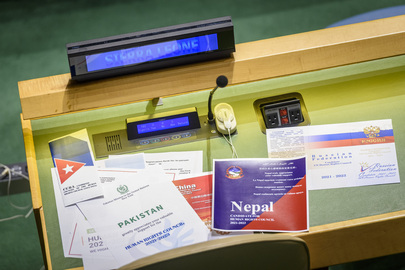
HRC: Resolution on the Consequences of Early and Child Forced Marriages

In talking with Madison Klimowicz, a representative from Nigeria, the resolution on forced marriage addresses three main topics: health, education, and economy. For Nigeria, this is important because, “70% of the population is in poverty,” says Madison, “[it’s] a huge role in child and early marriages.” The education aspect largely affects women and will focus on gender and equality to help combat forced marriages.
The resolution was met with little resistance, since it is “not a conflicting issue…people were more eager to be signatories,” adds Klimowicz. The resolution was later adopted by consensus.
Keep Up With The Accords
More to read
The AMUN Accords is a premier resource for fact-based Model United Nations simulations. We are always looking for new contributors. Want to write for the AMUN Accords? Check out out the submission guidelines and then get in touch!




